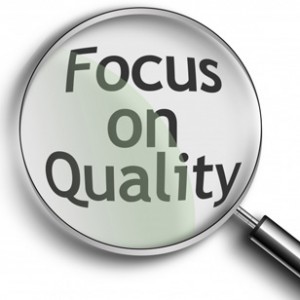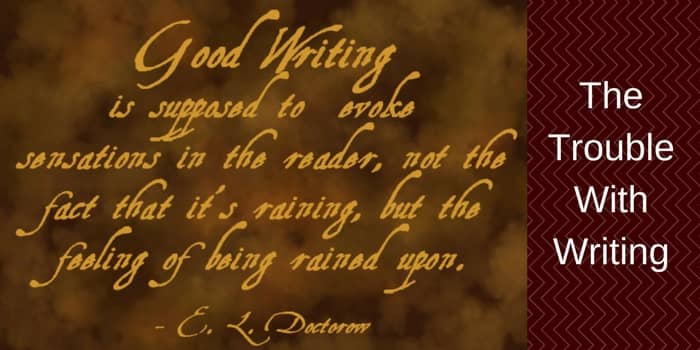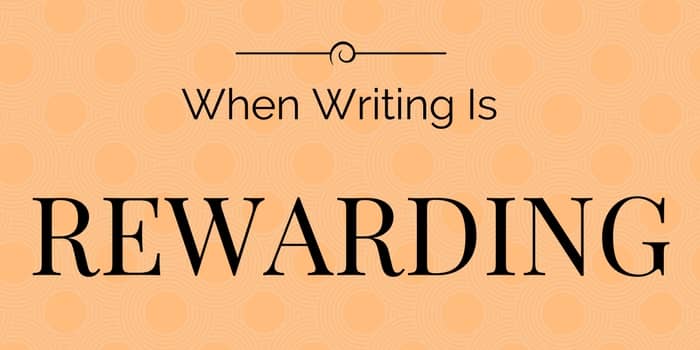 I must credit one of my blog readers with making me think about the quality standard of ebooks. It is no great industrial secret that some ebooks are very badly written and edited, but there are also many that are well-written and of great value. So how do you find out which is which before you buy?
I must credit one of my blog readers with making me think about the quality standard of ebooks. It is no great industrial secret that some ebooks are very badly written and edited, but there are also many that are well-written and of great value. So how do you find out which is which before you buy?
Before giving some tips that may help, I would like to say that the time is nearing when the main ebook publishers need to take some responsibility and start vetting to sort some of the wheat from the chaff. While it seems Amazon Kindle is still publishing anything and everything, I must say that Smashwords has at least started a form of quality control.
Their premium status ebooks are distributed to Amazon, Apple, Sony and many other retailers and to qualify for this program a book must pass a number of human checks. I know from my own experience that it can take some weeks to be approved. This I think is a step in the right direction.
Tip 1. So perhaps if you have a choice at the same price, Smashwords may be a good first option in finding a degree of quality.
Tip 2. Before I buy any ebook, I always download a sample first. I think this has saved me a number of times, as the first chapter or two tell you if it’s well-written or not. I have encountered ‘clanging’ errors many times, even on what are supposed to be quality books from well-known writers and publishers.
Tip 3. Reviews are a good guide, but be aware that there is a ‘trade’ in ebook reviews, so check out who wrote the review. Usually, you can contact the reviewer and ask. One of the benefits of social media.
Tip 4. Free ebooks are very often offered directly by authors. Check out author websites and see what they have to offer. Normally, you are asked to join a mailing list, but you can always unsubscribe if it becomes a pain.
Tip 5. Ask your friends, especially your friends, on social media. This is a great way to get an honest answer.
Ebooks are a new frontier and have become part of our everyday routine extremely quickly. And as with anything new, it takes time to settle. One point I would make, however, is that the quality standard of ebooks is not a culture clash between traditional publishers and Indies. Both can be good or bad.
In fact, I just finished reading the first Harry Potter book as an ebook and to my horror, there were a number of typos.




Good post, but I'd like to clarify, Smashwords currently does not publish via Amazon. Other than that, I do agree that more vetting of some sort needs to happen. I think readers will spread information quickly enough, but someone has to be burned before 'bad' books get a name and I wish there was a way to improve that experience for those who take risks on new writers and new stories.
Since getting a Kindle I have never bought a badly written book (in any format). This is because I always download the sample first (per your tip no. 2).
If a book is not available in Kindle format it is now highly unlikely that I will ever purchase an electronic or a hard copy of it. The days of wasting my money on books that I abandon after the first couple of chapters are over.
E book versions of published work through publishers have been ok so far with the odd exception of symbols like £ signs being 'mis-translated' and some other minor formatting errors which were irritating but not enough to cause me sleepless nights.
I would also support Yvonne's comments. If I'm in a bookstore, I'll read a bit first as a quality check and would do the same with an e-book. I'm not a great believer in Amazon reviews and I tend to follow recommendations from other writers via Twitter whose judgement I trust.
Ebooks are always a good topic of discussion. I buy ebooks by well-known authors because they're cheaper than the hard version. I've come across typos too but I haven't read an ebook or a hard version where there isn't at least one or two typos. :)
Typos and even plot logic errors are a fact of life in today's literature, ebook or paper. Print books rarely get the editorial goings-over that they used to, and authors are not the best choice for editing their own work. I find quality mistakes in print books often, even to the point of names of characters misspelled or otherwise incorrect. A good ebook is vetted as well as any paper pub. The writer does his own checks, then, if he's smart, sends it through a critique group or trusted readers before publishing. But it's true not all ebook authors are sticklers for quality. When I published my first book through Smashwords, I edited it twice and sent it through two critique groups before editing the final draft. By the way, Smashwords does not check for quality of writing, but for particulars of format in its premium products.
I feel proud to say I've lived a Potter-free existence. I don't know why I should take pride in such a thing, but I do. So there. :-p
Good post and good followup comments. The publishing industry is certainly experiencing a revolution right now. Self-e-publishing seems to be the catalyst, propelling its relatively unchecked growth by leaps and bounds. I suspect that money will be the driving force in the quality we see in future publications…what the consumer is willing to pay in exchange for what they get. If a buying public does not care about typos, grammatical errors, transitional errors, or errors caused by format transposition, self-publishers (authors and their publishing houses) will fail to change standards. As long as the money keeps flowing, this issue can be bemoaned till the cows come home…but it will be what it will be. :-)
There have been so many intelligent and informative comments regarding this post. Thank you all. And at the same time I have had a very kind reviewer point out some formatting problems in one of my own books. So it's off to work for me and I am sure it will result in a follow up post about ebook quality.
I know a couple of you mentioned that I erred in saying Smashwords published to Kindle. You are quite correct. I should have been more specific regarding this point. Smashwords do sell .mobi version ebooks, which are for use on Kindle devices.
On the point of quality control, I have discovered to my chagrin that one of my books that had been approved for premium status on Smashwords and therefore subject to human checking contained a number of formatting errors. The worst being random changes of font and font size. Strangely, the book was fine on Amazon Kindle publishing though. I have of course immediately submitted a new file version.
But surely fonts and font sizes are part of format quality control? Or am I being too pedantic?
Derek
Of the many learning curve tools an author must have sharp in the quiver plus: knowing paragraph vetting errors, string video editing, finding an editor who is not just a copy nit picker but an ally, becoming a marketing guru, achieving charismatic public speaking ability, and being all round god and perfectionist.. You seem to be doing all of these with grace. I on the other hand, am practicing.
Caroline :)
I think a writer these days should be lumped in with doctors and lawyers.
All are only practicing!
Just when I think I know something, guess what happens? lol
D.
I have encountered the occasional formatting error in my Kindle books, but I encounter by far more typos, bad spelling, and just plain crappy plotting (which is revealed mainly in the last third of a book). I encounter these issues just as often in paper books.